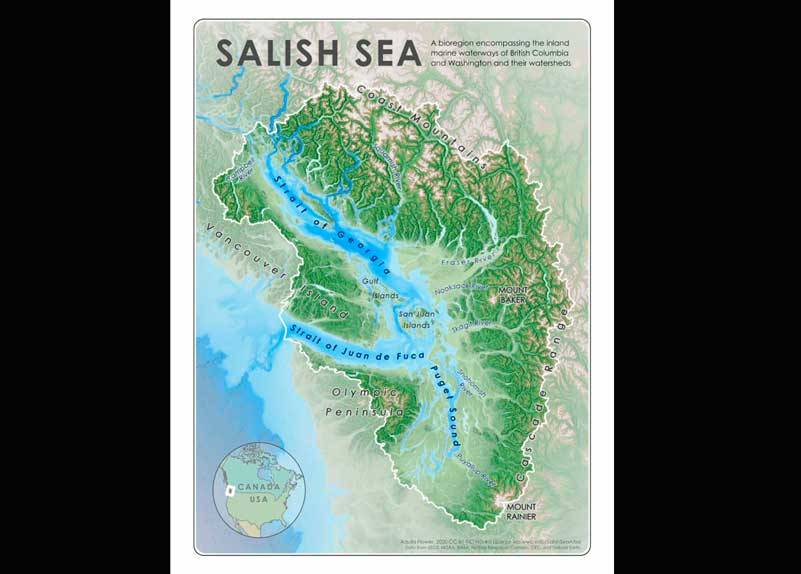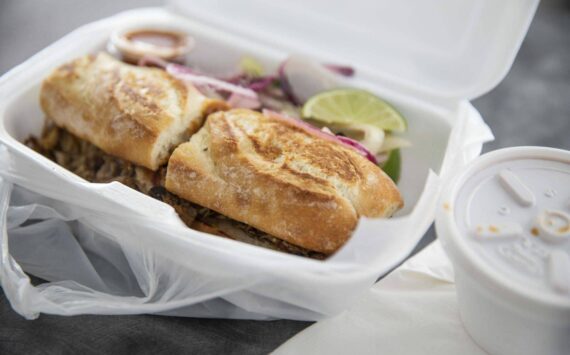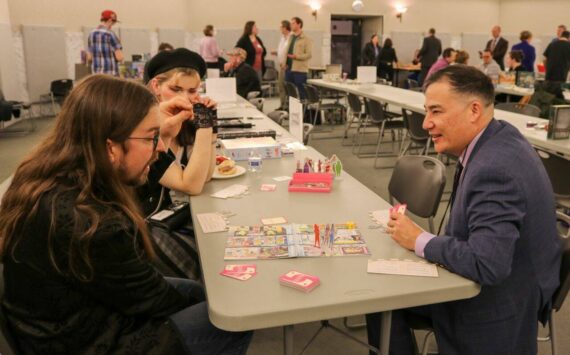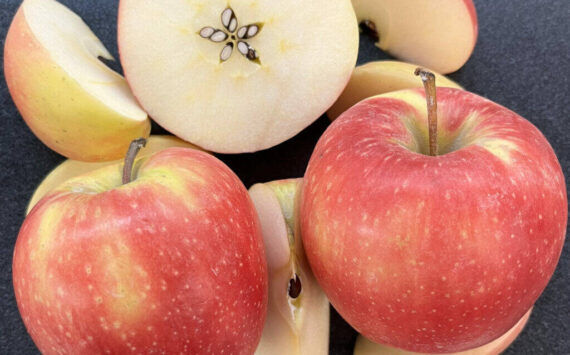By Morf Morford
Tacoma Daily Index
One thing that makes Washington state distinct among all the other states (except for the name of our state, oddly enough) is the predominance of Native/indigenous place names.
Our cities, large and small, from Yakima to Seqium, Puyallup to Issaquah, even our state’s major and internationally known city, Seattle, is of Native origin.
Other Washington cities that get their names from Native roots are Asotin, Cathlamet, Chehalis, Chimacum, Cle Elum, Enumclaw, Hoquiam, Mukilteo, Omak, Palouse, Spokane, Tonasket, Wenatchee and many, many more.
What other states have city names like Twisp, Wapato and Walla Walla?
Counties, from Skagit to Snohomish, Okanogan, Klickitat, Wahkiakum, Chelan and Kittitas Counties, even Whatcom among many more, all take their names from Native leaders or Native terms for local geographic features.
Our rivers, Snohomish to Skykomish, Sammamish and Stillaguamish (collectively known as the Ish rivers) to the Nisqually, Dosewallips Nooksack and Puyallup come from Native terms and names.
Many tribal names, from Wenatchee, Puyallup, Yakima and many more have been applied to cities, counties AND rivers.
The name of our defining sea, known as Puget Sound, with dozens of bays has taken on the new/historic name of the Salish Sea.
The name, of course, takes its name from the Coast Salish people, the indigenous peoples who live (and have lived for millennia) in southwest British Columbia and northwest Washington along the Salish Sea and share common linguistic and cultural origins.
The name Salish Sea for the entire body of water stretching from what we now know as upper British Columbia to lower Puget Sound, was coined only in the late 20th century.
No over-arching name existed for this area and there was not a commonly shared name for any of the many interconnected waterbodies in any of the Coast Salish languages.
The waterways of the Salish Sea were important trade routes for the Coast Salish, and they remain a source of food, resources and cultural identity for the indigenous peoples.
The Salish Sea contains more than four hundred islands, most of which can be grouped into one of three island groups: the Discovery Islands (between Vancouver Island and the mainland coast of British Columbia), Gulf Islands (Canadian), and San Juan Islands (USA).
Above it all, and visible to most of these Native named places, is the prominent peak (among many in what we know as the Cascade Range) that is the source of many of the rivers that feed the watershed and forests and, of course, provides home and habitat for the fish and game, especially the salmon, that have provided for, supported and in many ways defined the Native cultures for millennia and SHOULD have a Native name.
As I mentioned at the beginning, the state of Washington does not have a Native-based name. But many of our states do have names derived from Native roots and place names. In fact, more than half of our states have Native names.
From Alabama to Alaska to Arizona to Connecticut to Idaho, Illinois, Iowa and even Kansas, Kentucky, and the Dakotas, at least 26 of our states’ names come from Native roots.
You can see a whole list of Native state names (and their derivations) here: https://thoughtcatalog.com/james-b-barnes/2014/10/26-states-that-were-named-by-native-americans-was-your-state/.
On a semi-related note, five Canadian provinces have names with Native roots – Saskatchewan, Manitoba, Ontario, Yukon, and Canada’s largest and newest territory, Nunavut.
Place names are changed, adapted and modified for a variety of reasons, from demographic shifts to wars or natural catastrophes to cultural changes in values, recognition or accomplishments.
We in Washington state just might have the once-in-the-lifetime-of-a-state opportunity/challenge to find a new state name.
As is often the case, this too is because of an occasion and series of historical accidents a few thousand miles away that impact us.
In our nation’s capitol, a controversy has been brewing for decades, if not longer; should Washington, D.C. become a state?
This will almost certainly not be decided for several years at the least, but, based on demographics and political momentum, it seems nearly inevitable.
But if it did become a state, what would be it’s name?
Washington is, ahem, already taken.
But are we so attached to our current name that we wouldn’t give it up?
What if we took on a name more reflective of our history, culture, geography and yes, Native influences?
I have no idea what that name should look like, but “Washington” the man or even his legacy, has little historic resonance with the state that bears his name.
Names of states, nations, companies and individuals define us like nothing else, perhaps it’s time for us to consider, while we have time, a name that truly suits us here in the unique northwest corner of the USA.





